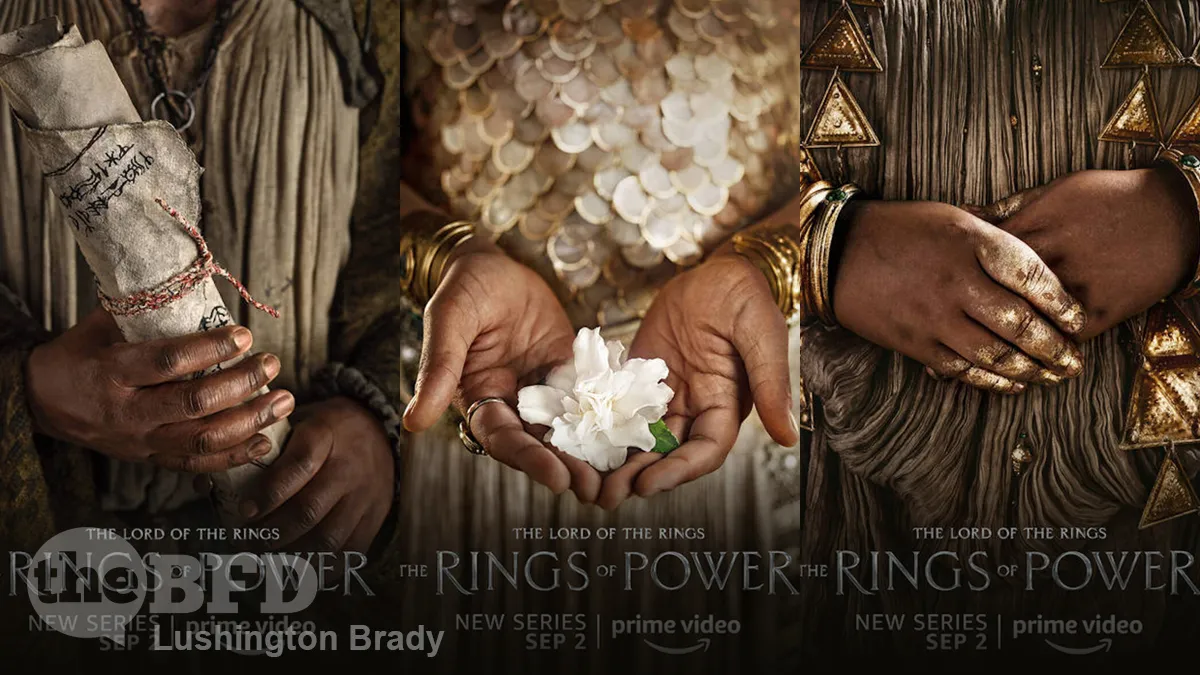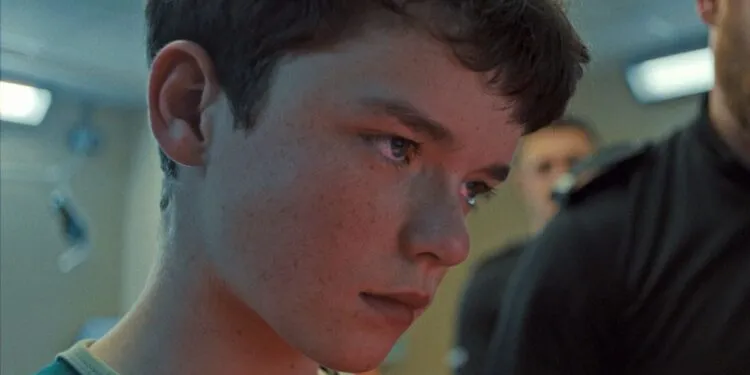Table of Contents
Two big-name fantasy franchises launched new tv series, this month. One has surprised fans, who were expecting the very worst, by actually being quite good. But that’s enough about HBO’s House of the Dragon. The big focus of attention has been Amazon’s The Lord of the Rings: The Rings of Power.
Depending on who you asked, it was either poised to be the greatest television show of all time, or the biggest, most expensive entertainment disaster in history. The truth is, it’s neither. And that’s what makes it so disappointing.
Because Rings of Power is neither very good, nor so bad as to be entertainingly bad. It’s just profoundly bland and boring. Mostly because the writing is just so unrelentingly abysmal.
The faults and sparse virtues of Rings of Power are evident from its opening scenes: a brief flashback-history, as per Peter Jackson’s The Lord of the Rings: The Fellowship of the Ring (which in turn borrowed the device from Ralph Bakshi’s 1978 animated The Lord of the Rings). Some of the visuals, such as the brief glimpse of the Two Trees of Valinor, are genuinely stunning. But the “why a ship floats” monologue from Finrod (Will Fletcher) to his then-very-little sister Galadriel (Amelie Child Villiers) (technically, her name at this time should have been Nerwen, but I digress, nerdishly) is just plain silly. It’s the work of a writer who thinks they’re being profound when they’re just being pretentious.
The following scenes, depicting the flight of the elves from Valinor and the war against Morgoth are a mixed bag, visually, but a wanton butchering of the “lore”. The opening history, for instance, leaves out entirely the whole reason for the war: Morgoth’s theft of the holy jewels, the Silmarils, and the rebellion of the elves against the divine powers of Valinor.
This seemed at first to be a judicious writing choice: thinning Tolkien’s voluminous history for a tv audience who might otherwise wind up lost. Yet, in the second episode, the Silmarils, Feanor, and the exile of the elves are all explicitly referenced. So the show-runners have inexplicably ended up contradicting themselves.
But if the show butchers Tolkien’s history, it does worse to his characters.
The show is notably built around a character called “Galadriel” — who bears almost no resemblance to anything Tolkien ever wrote about his character. Morfydd Clarke’s character is a bog-standard 2020s “stronk wahman”: kicking orcs and taking names and generally behaving as an arrogant know-it-all. In other words, what millennial females in Hollywood writer’s rooms like to think they are (not the wobbling, gender-confused land-whales they really are).
Which is completely contrary to Tolkien’s character. Although young Galadriel was fiery and athletic (by the time of the show’s setting, Galadriel is no longer young, even for an elf), her life-long defining characteristic “from her earliest years” was her “marvellous gift of insight into the minds of others”, by which she “judged them with mercy and understanding”. There’s not a trace of that in Morfydd Clarke’s portrayal.
But if Galadriel is a bastardised, dumbed-down character, the male elves are even worse. As Elon Musk has noted, “Almost every male character so far is a coward, a jerk or both”. That includes such characters noted for their wisdom and insight as Gil-galad (Benjamin Walker) and Elrond, played by the singularly weird-looking Robert Aramayo.
Gil-galad in particular comes across as just another iteration of the “conniving old white male” stock character that Hollywood so loves for its minor villains. As if any further proof were needed that the show is completely trashing Tolkien’s lore, Gil-galad connives to get rid of the pesky Slay-Queen Galadriel, who so threatens to upset his white-bread, white-guy world, by shipping her off to Valinor.
This is completely contrary to Tolkien’s writing. The right of return to Valinor was not any elf king’s to give, it was their birthright. Except in very rare circumstances — of which Galadriel was one. She was, until she passed the test of the ring, in The Lord of the Rings, actively banned from Valinor.
Quibbling? Maybe — but it only serves to prove how little regard the show-runners actually have for Tolkien’s work.
And don’t even get me started on those god-awful Harfoots. For a studio supposedly so concerned with opposing “bigotry”, Amazon has no problem peopling their show with filthy, half-witted, comic simpletons with ridiculous faux-Irish accents grubbing about in the dirt.
Forced to damn it with faint praise, the show’s defenders try to claim that “At least it looks good!” But does it, really? Apart from a few brief shots, there’s not a lot to show for the approximately $90 million per episode. The elves don’t look like elves at all, but middle-management guys with badly-glued-on ears and silly costumes.
Even the clearly-intended-to-be-awe-inspiring scenes of Khazad-dum are… ok. When Peter Jackson’s depiction of Khazad-dum in its ruined darkness as Moria is far more spectacular, on a far-smaller budget, it’s clear that Jeff Bezos’ vanity project is not going to be the epoch-defining television event he thought his vast fortune could buy.
Even if it were the most astonishing visual feast ever brought to screen, nothing could save Rings of Power from the sheer mediocrity of its writing. The dialogue isn’t even comically bad. It’s just dull and lifeless. The characters’ mouths keep moving, but they say nothing that actually registers in the brain. It’s like listening to an entire orchestra of Charlie Brown’s teachers.
The show won’t fail, of course. Amazon’s deep pockets will see it limp on for as many seasons as Dark Lord Bezos ordains. Hell, even The Simpsons is still, bewilderingly, refusing to just die a decent death a decade after it jumped the shark.
Like The Simpsons, The Rings of Power will almost certainly continue to be merely extraordinarily mediocre.









